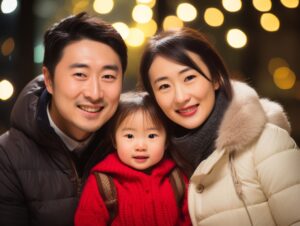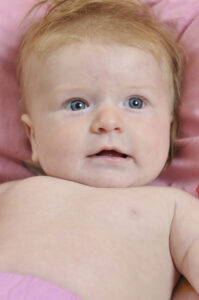Posted by Roberta Grimes • January 11, 2025 • 15 Comments
Afterlife Research, Death
The little toy dog is covered with dust,
But sturdy and staunch he stands;
The little toy soldier is red with rust,
And his musket molds in his hands.
Time was when the little toy dog was new
And the soldier was passing fair;
And that was the time when our Little Boy Blue
Kissed them and put them there.
“Now, don’t you go till I come,” he said,
“And don’t you make any noise!”
So, toddling off to his trundle-bed,
He dreamed of the pretty toys;
And as he was dreaming, an angel song
Awakened our Little Boy Blue —
Oh! the years are many, the years are long,
But the little toy friends are true!
Eugene Field (1850-1895), from “Little Boy Blue” (1888)
 My mother knew many old poems by heart. She especially liked “Little Boy Blue,” and she would recite it cheerily as she went about her day. Somehow, it didn’t tug at her heartstrings the way without fail it still does to mine. Even today, I cannot get through all three verses of it without tears in my eyes. Back in the nineteenth century, before the invention of antibiotics and the wonder of protective vaccines, it was not at all unusual for a family’s two or even three young children to all catch diphtheria or typhoid fever or some other now readily preventable illness, and for all of them to be called by an angel on a single night. Indeed, the wisdom was that you should not become too fond of a young child until after it had hit the age of five.
My mother knew many old poems by heart. She especially liked “Little Boy Blue,” and she would recite it cheerily as she went about her day. Somehow, it didn’t tug at her heartstrings the way without fail it still does to mine. Even today, I cannot get through all three verses of it without tears in my eyes. Back in the nineteenth century, before the invention of antibiotics and the wonder of protective vaccines, it was not at all unusual for a family’s two or even three young children to all catch diphtheria or typhoid fever or some other now readily preventable illness, and for all of them to be called by an angel on a single night. Indeed, the wisdom was that you should not become too fond of a young child until after it had hit the age of five.
 Even as late as Little Boy Blue’s day, memorial photography was a common thing. Most personal photography in the late eighteen-hundreds still happened formally in a studio, so when children and young people died unexpectedly, they often then would be photographed for the first time and in a lifelike pose. Or a whole family would then be photographed, but with one child looking stiffly propped-up. I have a book of nineteenth-century memorial photographs, and it includes some examples of two or even three small children in the same family who had died together of a single illness. They would generally be laid out to be photographed in plain-crafted oblong boxes leaning against a wall, from youngest to oldest. The youngest might be a nine-month-old in a long white christening dress which spills out of the casket onto the floor. Next might be a little boy perhaps two years old, nattily dressed in knickers and with his hands folded, our Little Boy Blue. And the third, larger box might contain a girl of barely four whose hair has been fussily teased into banana curls. Again, she is posed to greet eternity with her hands folded, as if she were an adult. I look at such pictures with sympathetic horror. There was a long-ago night on which this young family had three children, and they were fighting mightily to keep at least one of them alive! But by the next morning, their children all had succumbed to a terrible childhood illness that is just some preventable nothing today.
Even as late as Little Boy Blue’s day, memorial photography was a common thing. Most personal photography in the late eighteen-hundreds still happened formally in a studio, so when children and young people died unexpectedly, they often then would be photographed for the first time and in a lifelike pose. Or a whole family would then be photographed, but with one child looking stiffly propped-up. I have a book of nineteenth-century memorial photographs, and it includes some examples of two or even three small children in the same family who had died together of a single illness. They would generally be laid out to be photographed in plain-crafted oblong boxes leaning against a wall, from youngest to oldest. The youngest might be a nine-month-old in a long white christening dress which spills out of the casket onto the floor. Next might be a little boy perhaps two years old, nattily dressed in knickers and with his hands folded, our Little Boy Blue. And the third, larger box might contain a girl of barely four whose hair has been fussily teased into banana curls. Again, she is posed to greet eternity with her hands folded, as if she were an adult. I look at such pictures with sympathetic horror. There was a long-ago night on which this young family had three children, and they were fighting mightily to keep at least one of them alive! But by the next morning, their children all had succumbed to a terrible childhood illness that is just some preventable nothing today.
 My comfort is knowing that for most of a century now, sudden childhood deaths have ceased to be the parental nightmare that they once were. In fact, for a long time it has been a rare thing for a child that survives its birth to then die in childhood of anything except for cancer or an accident. Yet we who study death and the afterlife still can study deaths that happen out of order for the fact that they nevertheless very often turn out to be deaths that were planned before birth, and they clearly were designed to serve useful purposes in their families’ lives. Not every gift is fun to receive!
My comfort is knowing that for most of a century now, sudden childhood deaths have ceased to be the parental nightmare that they once were. In fact, for a long time it has been a rare thing for a child that survives its birth to then die in childhood of anything except for cancer or an accident. Yet we who study death and the afterlife still can study deaths that happen out of order for the fact that they nevertheless very often turn out to be deaths that were planned before birth, and they clearly were designed to serve useful purposes in their families’ lives. Not every gift is fun to receive!
 This phenomenon of childhood deaths as planned family gifts is a tough one for many people to accept. Nevertheless, we are told now that deaths which happen in childhood are a crucial fact of some lives that were well planned before birth; and when sub-adults die, their early deaths were always planned, without exception. My Thomas feels so strongly about this that he now insists to me that every death by any cause that happens before the early twenties is a planned exit by someone who didn’t need to live that additional lifetime, but who chose to be born one extra time and then die very young for the family’s spiritual benefit. Please recall the fact that we come to earth to learn how to better raise our spiritual vibrations away from fear and toward love so we can better grow spiritually. And then consider some of the many kinds of spiritual growth and depth and overall progress that can be gained by those who love and then lose a child.
This phenomenon of childhood deaths as planned family gifts is a tough one for many people to accept. Nevertheless, we are told now that deaths which happen in childhood are a crucial fact of some lives that were well planned before birth; and when sub-adults die, their early deaths were always planned, without exception. My Thomas feels so strongly about this that he now insists to me that every death by any cause that happens before the early twenties is a planned exit by someone who didn’t need to live that additional lifetime, but who chose to be born one extra time and then die very young for the family’s spiritual benefit. Please recall the fact that we come to earth to learn how to better raise our spiritual vibrations away from fear and toward love so we can better grow spiritually. And then consider some of the many kinds of spiritual growth and depth and overall progress that can be gained by those who love and then lose a child.
Consider, too, these important additional factors:
 Each newborn child is, of course, an eternal being. Having by now met three newborns and watched them grow to middle age, I can testify that this is true without question. I can recall looking into the face of each of my newborn children and being amazed to see not a blank stare back, flat and brand-new today. But instead, each was clearly a different eternal being from the moment of birth, surprised to find itself in a whole new place. Each was registering all the emotions upon greeting this new world and its mother that would be appropriate for the unique human being in my arms that I would later come to know so well. My older daughter was looking around, curious, quite interested in the world but not particularly in me (she has Asperger’s syndrome). My middle child, also a girl, does not have Asperger’s, and she was glancing around, but mostly locking eyes with me, seeming to be glad to see me, and cuddling. My son, another Asperger’s child, at first was regarding everything that he saw in this astonishing new world, including me, with a sensible wariness. And that, my dear friends, pretty well sums up the three bright and beautiful offspring who remain at the center of my life today.
Each newborn child is, of course, an eternal being. Having by now met three newborns and watched them grow to middle age, I can testify that this is true without question. I can recall looking into the face of each of my newborn children and being amazed to see not a blank stare back, flat and brand-new today. But instead, each was clearly a different eternal being from the moment of birth, surprised to find itself in a whole new place. Each was registering all the emotions upon greeting this new world and its mother that would be appropriate for the unique human being in my arms that I would later come to know so well. My older daughter was looking around, curious, quite interested in the world but not particularly in me (she has Asperger’s syndrome). My middle child, also a girl, does not have Asperger’s, and she was glancing around, but mostly locking eyes with me, seeming to be glad to see me, and cuddling. My son, another Asperger’s child, at first was regarding everything that he saw in this astonishing new world, including me, with a sensible wariness. And that, my dear friends, pretty well sums up the three bright and beautiful offspring who remain at the center of my life today.
 Every child who is born into our lives and then dies early as a sub-adult is, just as we are, a powerful, eternal being. Each child who transitions early from our lives never leaves us randomly; but instead, each such departure is lovingly and carefully planned before that child’s birth to be a constructive gift for all who will know and love that child. And, knowing this to be true, we can especially honor our children who have gone on ahead of us by not blaming God, and not blaming any human agent for the temporary loss of our child. Instead, it is important that we forgive universally and for everything, and that we forgive ourselves and our child most of all! That we will be joyously together again in the afterlife is a certainty, promised to us by God and by Jesus. And, oh my dear ones, how very great will be that day!
Every child who is born into our lives and then dies early as a sub-adult is, just as we are, a powerful, eternal being. Each child who transitions early from our lives never leaves us randomly; but instead, each such departure is lovingly and carefully planned before that child’s birth to be a constructive gift for all who will know and love that child. And, knowing this to be true, we can especially honor our children who have gone on ahead of us by not blaming God, and not blaming any human agent for the temporary loss of our child. Instead, it is important that we forgive universally and for everything, and that we forgive ourselves and our child most of all! That we will be joyously together again in the afterlife is a certainty, promised to us by God and by Jesus. And, oh my dear ones, how very great will be that day!
Aye, faithful to Little Boy Blue they stand,
Each in the same old place —
Awaiting the touch of a little hand,
And the smile of a little face;
And they wonder, as waiting these long years through
In the dust of that little chair,
What has become of our Little Boy Blue
Since he kissed them and put them there.
Eugene Field (1850-1895), from “Little Boy Blue” (1888)
(Many photos are from Vecteezy.com)
Dear Roberta,
Thank you for speaking on a subject that many would rather not. My brother and his wife lost their son at birth, knowing he would not live due to serious malformation and other issues. It was hard on all of us as he especially is a dearly beloved sibling. It took many years of counseling to help them let go of guilt- due to their religion thinking they were being punished. It was a woman who could speak with the other side that brought his mission to their attention to consider-very much what you are saying-a plan to help them grow spiritually. They never had any other children, yet all the nieces and nephews are drawn to them like magnets!
I’m also grateful you mention your children with Asperger syndrome. I still struggle with my grandson being a delightful attentive baby and suddenly lose focus and be labeled autistic at 2. My daughter is a strong advocate but struggles with paying all the bills and dealing with the red tape to get help. I send money when I can. I admit I get angry with God sometimes. Seeing children suffering in famines, wars, from diseases-I’m thinking to help us adults grow and learn?
I really appreciate you talking about this. It’s such a trigger for me.
My children also developed normally before regressing at about 2 years old and being diagnosed with Autism. It has been a great spiritual blessing for me to have the opportunity to love and care for them. I received a witness from the Holy Spirit, when the youngest was just a couple of months old, that his mission is to teach his parents and carers about unconditional love and living in the moment for both of which he is a superb model. After surviving childhood leukaemia st 5, he has performed his mission gallantly and turns 18 next week.
Oh my dear Mandi, how wonderful that you received that gift from the Holy Spirit! My dear one, my Asperger’s children are both high-functioning, and both college graduates, but just rather eccentric; and neither has married. We are thrilled that after having lived away, both have moved back in with us, so we have a wonderful big family. And our middle child has given us grandchildren, so all our lives are full.
Oh my so very dear Fran, thank you so much for sharing all of this! Oh my goodness, my dear one, these issues even in combination will affect so many families so deeply, and we love through them and we so very bravely soldier on. God bless you and your dear family, my darling Fran!
Dear Roberta, today’s post was very reassuring and gives me hope for the future. I lost my son Daniel at 6 weeks and 7 years ago lost my daughter Michelle at 44. Thankfully I have my daughter Kelly 42 who is thriving. The thought of us all being together again along with my parents and both my husbands takes any fear of death away. Thankyou!
I do hope you’re feeling better this week x
Oh my dear wonderful Linda, you have lost so many loved ones! And oh my yes, it is such a wonderful blessing to know that you all will be together again, my darling. So much to look forward to now!
I find your views most interesting, but sometimes not consistent. I have two unrelated questions.
If the sacraments were created by man, then why was Jesus baptized?
Was Thomas Jefferson against political parties?
Hello Garland! Over all four Gospels, the general answer that we have to your first question seems to be that John’s baptism was in vogue at the time. But the true answer from God seems to be that it was God’s wish that Jesus be baptized by John, to mark the start of Jesus’s active ministry. From the Gospel of Matthew:
13 Then Jesus arrived from Galilee at the Jordan coming to John, to be baptized by him. 14 But John tried to prevent Him, saying, “I have need to be baptized by You, and do You come to me?” 15 But Jesus answering said to him, “Permit it at this time; for in this way it is fitting for us to fulfill all righteousness.” Then he permitted Him. 16 After being baptized, Jesus came up immediately from the water; and behold, the heavens were opened, and he saw the Spirit of God descending as a dove and lighting on Him, 17 and behold, a voice out of the heavens said, “This is My beloved Son, in whom I am well-pleased.” (MT 3:13-17) But the baptism of John was not of course the baptism of Constantine’s Christianity, which came along three hundred years later; and it was not “in the name of the Father, the Son, and the Holy Spirit.”
As for Thomas Jefferson, he was ambivalent and nuanced about political parties, as he was about so many things.
On what points are my own views not sufficiently consistent for you?
I love your meggages. I probably should have said that they sometimes confused me. I’m 77 and have always been in church. I feel more spiritual and less religious now.
Oh my very dear Garland, if you have been a practicing Christian for all your life, I do agree that it can be confusing to find yourself now free of traditional Christian dogmas, and just listening to Jesus! But outside the church is no fear at all, and only love, my dear one. Just call upon Jesus, and He will help you to understand it all!
thank you.My Aunt Jess lived to be 101. During the depression she was a preacher and a bootlegger so she could support her son. I once asked her what church she belonged to. She answered that she didn’t belong to a church, but she belonged to Jesus. I think she was telling me something.
Thank you. My son went on before us at the age of 16. Somehow deep inside of me I knew he would. I hold him in my heart and talk to him often. I try to stay in the love and light he gave us for 16 years.
Thank you for this post, it helped me connect with him for a short moment as I read your words.
Oh my dear beautiful Lisa, I am so very glad!!
Thanks for this thoughtful post. As an anesthesiologist (now retired) I witnessed pediatric mortality on a relatively infrequent basis. Once is too much, but some situations are unavoidable if you are present when it occurs. Administering anesthesia care to obstetric patients is more often than not a happy experience. However, miscarriages are not an especially rare event and can occur at any phase of a pregnancy. For the stunned and saddened parents, reassurance that they didn’t do anything wrong is about all there is to offer initially. To the practitioners present for those events, that never felt like enough. I always felt that innocent souls would get “red carpet” treatment in the afterlife, and that’s how I personally dealt with those deaths, never sharing that thought with anyone else. But I never considered the aspect of a pre-planned life that would purposefully and prematurely leave this plane of existence for the benefit of those left behind. “Benefit” being a perhaps relative term. As was noted in your blog, not every gift brings immediate joy. However, every gift can have purpose, and if it’s a life, it definitely has purpose.
Hi Mark,
I can’t imagine what it must have been like to witness pediatric mortality, even infrequently, as you did.
It would bring up so many emotional, life-and-death issues.
And it would be difficult not to be able to offer relief, other than assuaging the bereaved they were blameless. Inability to rid people of pain would make me fret with agonizing frustration I think.
Yet I too have always had a hunch that transitioned innocent souls would be loved and cared for in the afterlife. It is a feeling I always maintain deep inside. I look at earth as the place of hardship and the afterlife as its opposite; that is the shining place of love, vigor and healing. There, no loneliness or bereavement could exist.
Over time I’ve come to consider both earth life and afterlife as a single, flowing continuum of consciousness. We are lifted and brightened after death I reckon. So the tragedies, losses and the brutal sundering that one feels when a loved one dies will be overcome. We will meet each other again in joy.
And Roberta, you are doing a wonderful thing by informing people that nobody really dies, that we will find each other on the other side.
There is now so much evidence, such a wealth of experiences, concerning the existence of the soul, that it would be foolish to discount the endurance of consciousness beyond the physical body.